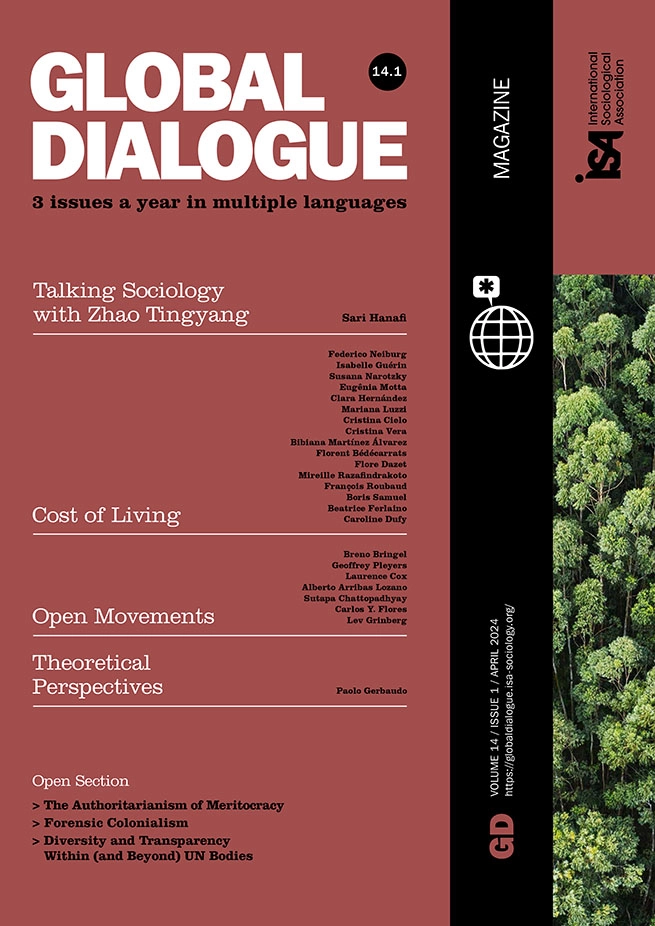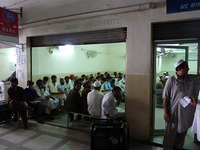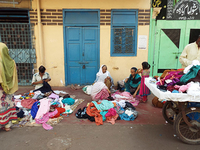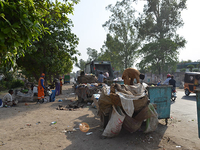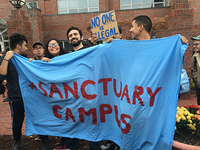GD 7.2 - June 2017
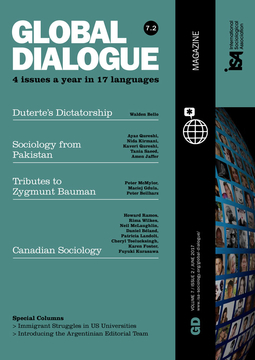
Global Dialogue is available in multiple languages!
Select the language to download the issue.
Editors:
Michael Burawoy.
Associate Editor:
Gay Seidman.
Managing Editors:
Lola Busuttil, August Bagà.
Media Consultant:
Gustavo Taniguti.
Consulting Editors:
Margaret Abraham, Markus Schulz, Sari Hanafi , Vineeta Sinha, Benjamín Tejerina, Rosemary Barbaret, Izabela Barlinska, Dilek Cindoğlu, Filomin Gutierrez, John Holmwood, Guillermina Jasso, Kalpana Kannabiran, Marina Kurkchiyan, Simon Mapadimeng, Abdul-mumin Sa’ad, Ayse Saktanber, Celi Scalon, Sawako Shirahase, Grazyna Skapska, Evangelia Tastsoglou, Chin-Chun Yi, Elena Zdravomyslova.
REGIONAL EDITORS
Arab World: Sari Hanafi , Mounir Saidani.
Argentina: Juan Ignacio Piovani, Pilar Pi Puig, Martín Urtasun.
Bangladesh: Habibul Haque Khondker, Hasan Mahmud, Juwel Rana, US Rokeya Akhter, Toufi ca Sultana, Asif Bin Ali, Khairun Nahar, Kazi Fadia Esha, Helal Uddin, Muhaimin Chowdhury.
Brazil: Gustavo Taniguti, Andreza Galli, Ângelo Martins Júnior, Lucas Amaral, Benno Alves, Julio Davies.
India: Rashmi Jain, Jyoti Sidana, Pragya Sharma, Nidhi Bansal, Pankaj Bhatnagar.
Indonesia: Kamanto Sunarto, Hari Nugroho, Lucia Ratih Kusumadewi, Fina Itriyati, Indera Ratna Irawati Pattinasarany, Benedictus Hari Juliawan, Mohamad Shohibuddin, Dominggus Elcid Li, Antonius Ario Seto Hardjana.
Iran: Reyhaneh Javadi, Niayesh Dolati, Mina Azizi, Mitra Daneshvar, Vahid Lenjanzade.
Japan: Satomi Yamamoto, Miki Aoki, Masataka Eguchi, Mami Endo, Akane Higuchi, Yuka Hirano, Hikaru Honda, Yumi Ikeda, Izumi Ishida, Aina Kubota, Yuna Nagaye.
Kazakhstan: Aigul Zabirova, Bayan Smagambet, Adil Rodionov, Gani Madi, Almash Tlespayeva, Kuanysh Tel.
Poland: Jakub Barszczewski, Katarzyna Dębska, Paulina Domagalska, Adrianna Drozdrowska, Łukasz Dulniak, Jan Frydrych, Krzysztof Gubański, Kinga Jakieła, Justyna Kościńska, Kamil Lipiński, Mikołaj Mierzejewski, Karolina Mikołajewska-Zając, Adam Müller, Zofi a Penza, Teresa Teleżyńska, Anna Wandzel, Jacek Zych, Łukasz Żołądek.
Romania: Cosima Rughiniș, Raisa-Gabriela Zamfi rescu, Costinel Anuța, Maria-Loredana Arsene, Tatiana Cojocari, Andrei Dobre, Diana Alexandra Dumitrescu, Iulian Gabor, Rodica Liseanu, Mădălina Manea, Mihai-Bogdan Marian, Andreea Elena Moldoveanu, Rareș-Mihai Mușat, Oana-Elena Negrea, Mioara Paraschiv, Ion Daniel Popa, Diana Pruteanu Szasz, Eliza Soare, Adriana Sohodoleanu.
Russia: Elena Zdravomyslova, Anna Kadnikova, Asja Voronkova.
Taiwan: Jing-Mao Ho.
Turkey: Gül Çorbacıoğlu, Irmak Evren.
GD 7.2 - June 2017
Editorial
Sociology in an Age of Reaction
Duterte, Erdogan, Orban, Putin, Le Pen, Modi, Zuma and Trump – they all seem to be cut from a similar nationalist, xenophobic, authoritarian cloth. The triumph of Trump has given new energy to illiberal movements and right-wing dictatorships. Undoubtedly, the political reaction has been in the making for decades as liberal democracies have propelled third-wave marketization with its precarity, exclusion, and inequality. The fascist turn of the 1920s and 1930s, a forerunner of today, followed second-wave marketization. It collapsed with World War Two, but can we be so sure that this round of reaction will be defeated? How strong are the liberal institutions of democracy? The early days of the Trump administration suggest they are not without resilience in the face of a barrage of executive orders. The article by Portocarrero and Lara García points to the university as one such arena of resistance.
What about other countries? In this issue Walden Bello describes the atrocities of Philippines President Duterte, whose rise to power can be traced to the failures of liberal democracy, following the overthrow of the Marcos regime – failures expressed in brazen political corruption, burgeoning inequality, compounded by subjugation to US foreign policy. This political response to the flaws of liberal democracy may be populist in character even as it protects the interests of the dominant classes while demonizing a stigmatized section of the population – drug users and drug dealers – just as Erdogan demonizes the Kurds, Trump demonizes immigrants and German Fascism demonized non-Aryans. Indeed, Bello’s recounting of parallels with German fascism is all too convincing.
Pakistan is another country that is no stranger to military rule where populist appeals accompany the concentration of economic power. Pakistani sociology is a restricted enterprise but innovative and critical nonetheless as we see in this issue with articles on the way infrastructural development benefits multi-national corporations, how the Gulf countries surveil bodies to select the most productive Pakistani migrants, and how female entry into the labor force does little to arrest violence against women. We also have two studies of Pakistanis in the UK, dealing with changes in Pakistani-immigrant marital relations and how Muslim students handle being the targets of securitization. Together, the five case studies develop a genuine postcolonial sociology of subjugation that transcends national boundaries.
Very different is the more optimistic sociology from Canada, tied to such issues as immigration and environmental justice. Canadian sociology is far more connected to the policy world. Despite the derogatory expletives of former Prime Minister Stephen Harper, Canadian sociologists receive a comparatively friendly reception from the wider society. Their despondent tone only reflects their high expectations from a still social democratic state.
If there is one sociologist who has captured the significance of our era, it is Zygmunt Bauman, who sadly died at the age of 91. Our three memorialists describe his extraordinary life, informed by a powerful moral vision, laced with a skeptical utopianism. His inspirational sociology will live on for decades.
Michael Burawoy, editor of Global Dialogue
Global Dialogue can be found in multiple languages.
Submissions should be sent to globaldialogue@isa-sociology.org.
